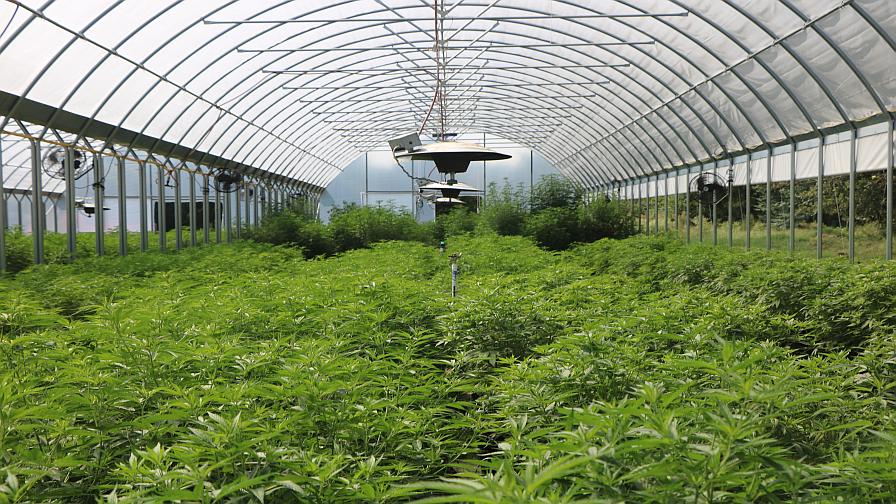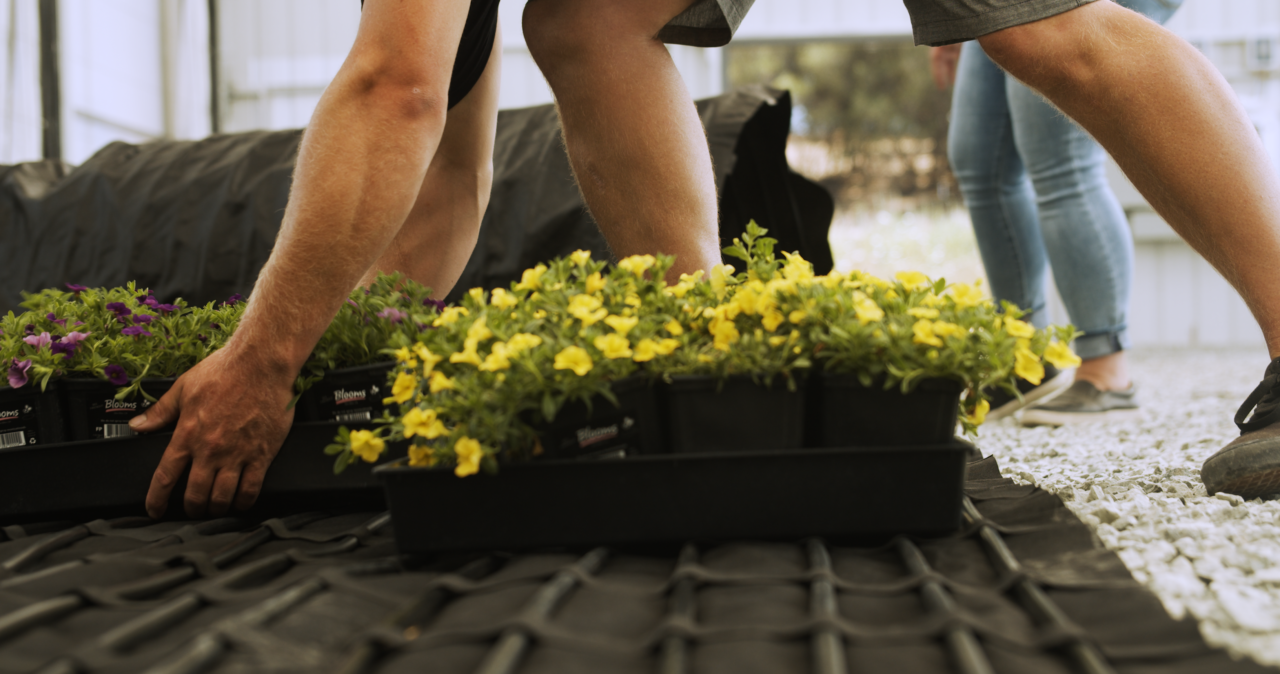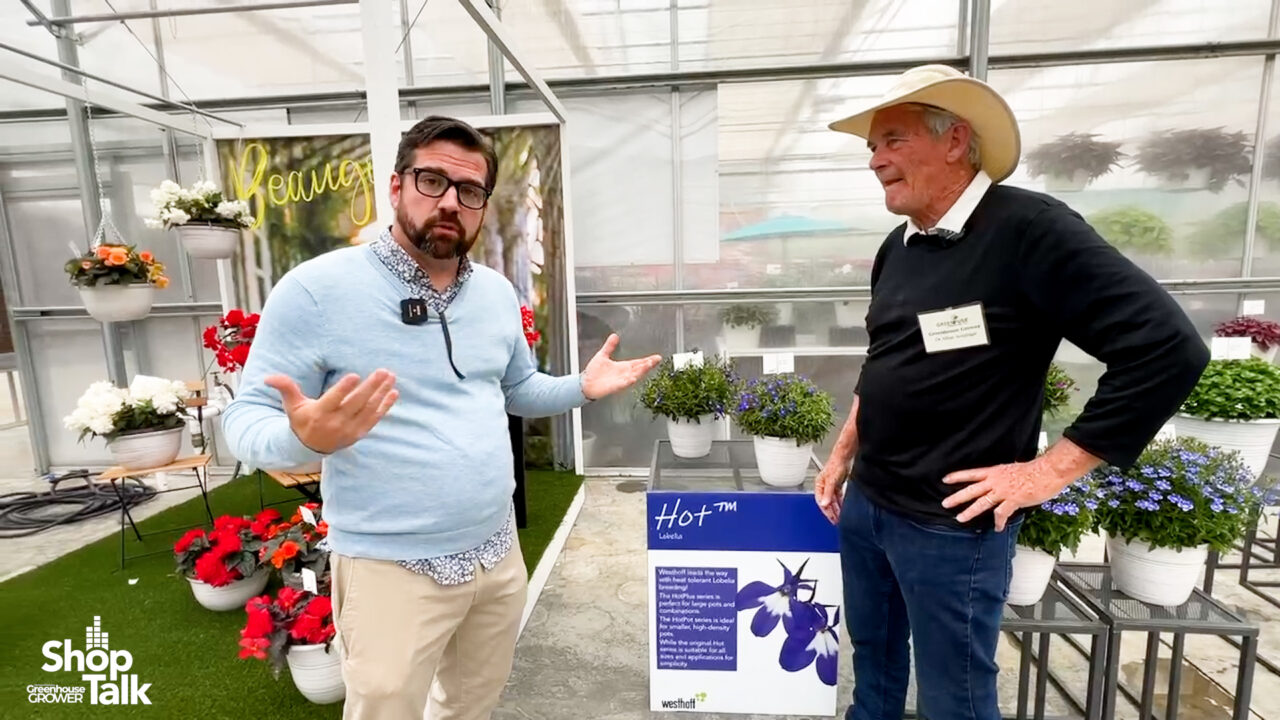Slow Going For Sustainable Standard
Doug Cole is a sustainability proponent. Last summer, his greenhouse operation, D.S. Cole Growers in Loudon, N.H., was the first in the United States to earn the MPS-ABC environmental certificate, and Cole is currently striving to improve his operation’s sustainable rating in MPS’s A-B-C system.
Cole even serves on the Environmental Sustainability Criteria Development subcommittee working toward establishing a National Sustainable Agriculture Standard. The subcommittee is tasked with developing six environmental principles, the first of which was recently developed after months of debate. It focuses on air pollution and water and soil degradation.
When the subcommittee establishes all six principles, metrics will be developed to determine exactly what’s sustainable and what isn’t. But at the committee’s current pace, Cole believes a National Sustainable Agriculture Standard is years away. And the more he participates in subcommittee conference calls and online discussion threads, the more he wonders why greenhouse growers would want the National Sustainable Agriculture Standard developed.
The communication between subcommittee members has been highly focused on general field agriculture, Cole says–not floriculture. And when the principles, metrics and the standard are eventually squared away, he’s concerned an addendum will be created that excludes growers from certain criteria yet requires them to meet additional criteria that are exclusive to them.
“If our focus is on pollution, for example, the focus is on pollution related to crop farming,” Cole says. “It could be tractors; it could more than likely be pesticide applications; it could be fertilizer drift. The focus really doesn’t relate [to floriculture]. No one talks about it. And I’m not bringing it up over and over because I don’t want to confuse the issue.”
Don’t get Cole wrong: He contributes to the debates. But often, when a debate appears settled, a subcommittee member will pose yet another argument. The principle shouldn’t be phrased “the best you can,” one will say for example, “but as a measurable threshold.” In the end, subcommittee members wind up back at square one.
“They’re all good questions that are being asked,” Cole says. “The subcommittee members are trying to do the right thing.”
But, there are so many different interests represented on the environmental subcommittee, Cole says, that it’s been difficult for those participating in the process to compromise. The same can be said of the 50-plus person Standards Committee and the other subcommittees, considering the range of interests represented.
A Different Outlook
Just as there are differences between subcommittee members about the criteria and indicators they’re developing, there are differences between members about the speed at which the process is moving and the effect a standard will have. Scott Titus, owner of Windy Meadow Nursery in Bellingham, Wash., is also a member of the environmental subcommittee, and he argues the time it’s taking to develop principles is essential. He also believes floriculture does fit into the subcommittee’s discussions.
“I think the process must go at the pace that’s set by the concerns out there,” Titus says. “I don’t think you can rush this. It’s going to be a couple years before these standards are out. Hopefully, they lead to a greater understanding of production practices that are less wasteful.
“We are developing ag standards,” Titus adds. “I don’t think we’re trying to include what’s considered ‘specialty crops’ in a greenhouse situation. Some of the methodology (between agriculture and floriculture) is different, but the concerns are the same–like the off-target movement of pesticides. That’s all the same.”
One point Cole and Titus agree on is the amount of persistence needed to make a point to subcommittee members. Titus says he spent 20 hours working on one sentence for the air pollution and water and soil degradation principle–and it was eventually vetoed. But the amount of time put in makes sense, he says, because any created standard will be for all time.
Stan Pohmer, who represents floriculture on the Standards Committee in the general interest category, agrees the amount of time put in is necessary. Pohmer argues progress is being made in that time, though.
“It’s deliberately slow–sometimes painfully slow–but when you’re dealing with a broad spectrum like ag, you have to be sure you hear all sides of the discussion,” Pohmer says. “After we went through the task force process last year, we established the subcommittees to work on the actual detail of what the standard might encompass. We’re holding regular conference calls and coming up with actual criteria. I don’t know the end date, but a lot of time is being invested on this by a lot of different people.”
The earliest date a standard may be developed, Pohmer says, is 2012. But even then, the standard will have to go through a series of review and comments by the industry and general public.
“We are trying to put together a roadmap so these discussions don’t go on until 2020,” Pohmer says. “There has to be some closure. Because it’s a process and it’s based on continuous improvement, the standard will continue to evolve over time.
VeriFlora’s Involvement
Through the lengthy process, VeriFlora, which has a voice on the Standards Committee in Linda Brown of Scientific Certification Systems (SCS), has continued to develop as the most recognized sustainability certification for our industry in North and South America. But what happens with VeriFlora if a national standard is developed over the next few years?
“Our expectation is VeriFlora will remain the gold standard, whatever the national standard is,” Brown says. “We trust the process. We trust it will arrive at the right solution. Whatever happens, we will ensure we conform to and, at a minimum, meet the national standard.”
One point Brown stresses, as does SCS certification manager Michael Keyes, is the national standard process is one in which growers should get involved.
“Others can share their views, even though they won’t be voting members,” Keyes says. “This really is an open process. It’s not like [horticulture] doesn’t have a voice. If anything, it has been criticized because the people producing grains, soybeans or cotton think horticulture has too much of a voice.”









